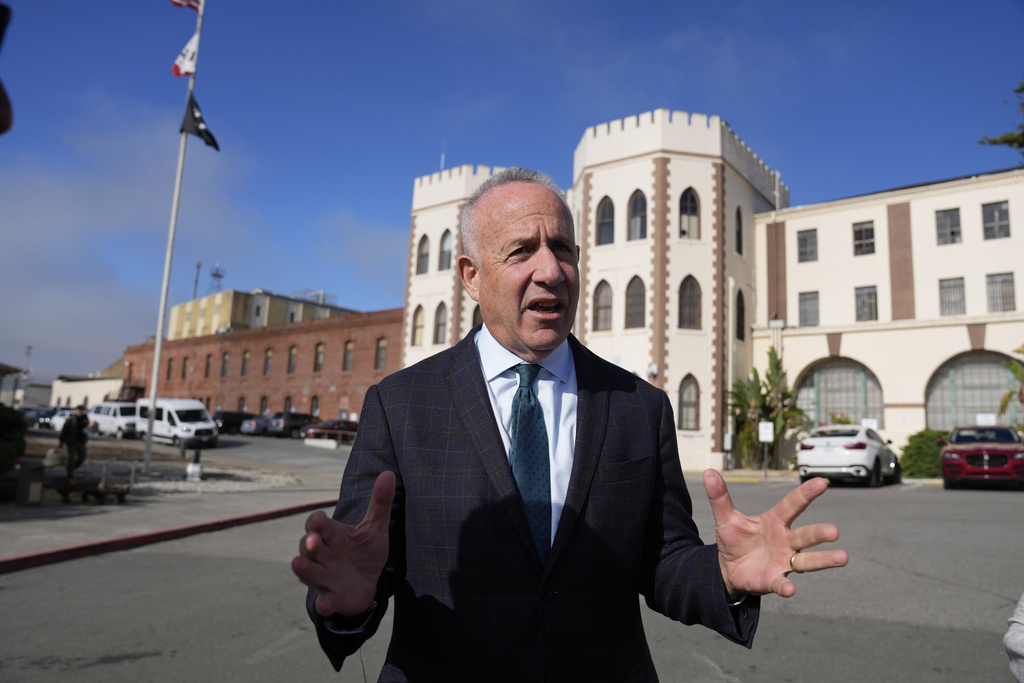Proposition 36 taps into the public’s rightful frustration with homelessness, the prevalence of deadly fentanyl and the rise of organized retail crime. But, like some other poorly written initiatives, it presents solutions that are flawed, outdated and expensive.
Proposition 36 might actually make these problems worse. Voters deserve real solutions to these problems. False hope will further anger the public and make it harder for those suffering from substance abuse issues to get the help they need.
In short, the measure is the wrong remedy for the problems we face. It would slash tens of millions of dollars annually from treatment and rehabilitation programs and drive up our jail and prison populations — with no way to pay for it.
Passing Proposition 36 would take California back decades — back to a time when simple drug possession was prosecuted as a felony, tens of thousands of lives were upended by overincarceration, and state and local governments wasted billions on jails and prisons as our inmate population skyrocketed.
For me this is not philosophical. As a big-city mayor, I would support any measure, even increasing criminal and civil penalties, if I believed that the proponents and the system would deliver the desperately needed treatment for people addicted to these terrible drugs. While the proponents claim Proposition 36 is about drug treatment, the measure does not offer a dollar for any new programs and actually would cut tens of millions of dollars annually for proven programs.
That’s because Proposition 36 would increase incarceration, reducing state savings from a measure approved by voters in 2014 — savings that the measure required to be targeted at mental health, drug treatment, school truancy, dropout prevention and victim services programs. Proposition 36 would put financial stress on state and local governments that would lead to deeper cuts in critical services — including those aimed at reducing homelessness. More than 20 counties do not have a single drug-treatment bed or slot.
Accountability for engaging in criminal activity is essential. But there is a better way than Proposition 36.
This year, the governor and the Legislature enacted comprehensive new laws increasing criminal penalties for both fentanyl dealers and retail theft that are actually stronger and more effective than Proposition 36.
Proposition 36 offers a Catch-22 for addicts — jail if you don’t accept drug treatment. But it would make deep cuts to funding for treatment so that no slots are available.
Proposition 36 does not come cheap. The state’s non-partisan legislative analyst estimates the measure would cost the state from tens of millions of dollars to the low hundreds of millions of dollars annually, with no way to pay for it. That means cuts to services people depend on or tax increases to pay for more jails and prisons.
Related Articles
6 myths about California crime as voters weigh ballot measure on drugs, retail theft
Poll shows runaway support for Prop. 36 measure to toughen theft, drug crime penalties
Your guide to Proposition 6, California’s measure to ban involuntary servitude in prisons
Opinion: Climate costs go up if California fails to act with Prop. 4
Opinion: California has enough debt. Don’t add $10 billion more for a climate bond
California is struggling to deal with the fentanyl epidemic on our streets and in our communities. Forty years ago, policymakers reacted to the crack cocaine epidemic by passing new mandatory sentencing laws that destroyed families, led to overcrowded jails and prisons and contributed to fiscal pressures that some local governments felt during the early 2000s.
We must not make the same mistakes as the previous generation. We need smart policy like this year’s new laws that increase criminal penalties for those bringing drugs into our communities and to provide treatment for people wrestling with addiction. Proposition 36 is the wrong answer for California. Please join law enforcement, business leaders, educators and criminal justice advocates in voting no on 36.
Darrell Steinberg is the mayor of Sacramento, former president of the state Senate and the author of Proposition 63, the Mental Health Services Act passed by voters in 2004.












